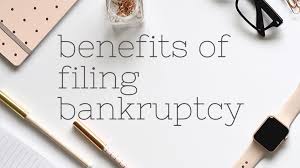Debt Law North Carolina

Debt Law North Carolina
If you are not willing or unable to pay off a debt voluntarily, the State of North Carolina has various legal means for a creditor to collect your debt. However, a creditor cannot immediately try and force you to pay the money which you owe. First, the creditor must go to the court and obtain a judgment against you. Once the court enters a judgment, the creditor can then begin collection proceedings by way of a wage garnishment, liens on the debtor’s property, and/or withholding money from the debtor’s bank account.
If a judgment has been issued against you by a court of law, allowing a creditor to pursue debt collection proceedings, it is important to keep in mind that you have legal options – including filing for bankruptcy (Chapter 7 or Chapter 13), in some cases. The North Carolina debt collection lawyers at King Law Firm can explain those options to you and help you decide upon the best course of action, given your unique circumstances. Please call us today to learn more about how we may be able to assist you with your legal matter.
Wage Garnishment
Garnishing a person’s wages is one common method that creditors use to collect on a debt. In this scenario, a creditor will contact a person’s employer and require him or her to take out a certain amount of earnings that would usually go to the employee each pay period. The employer must then forward that held money to the creditor.
Wage garnishment may be used as a way to collect on debts that are related to child support, student loans, alimony, and ambulance services. However, wage garnishment may not be used as a way to collect credit card debts, car loans, and other types of personal debt.
Property Liens
A property lien is an encumbrance – such as a mortgage – which exists on a certain piece of property. In some cases, a creditor who has a judgment against a debtor may be able to have a lien placed on the debtor’s home. In that scenario, if the debtor later decides to refinance the home or sell it, he or she must satisfy the remaining lien on the home from the proceeds of the sale. Moreover, if the value of the lien exceeds the value of the home’s equity, then the debtor may not be able to refinance or sell the home until such time as the lien is paid off in full.
Bank Levies
A bank account levy allows a creditor or debt collector to take money from a person’s bank account in order to satisfy a debt that is outstanding. In North Carolina, if you have a judgment that has been entered against you, you should be careful about money you deposit into a bank account. Most bank accounts are non-exempt from collections by creditors with judgments.
Speak to an Experienced North Carolina Debt Collection Lawyer Today
At King Law Firm, we make it our priority to help you fight unfair debt collection practices and can help you decide on the best course of action for your circumstances. To schedule a free case evaluation and legal consultation with a North Carolina debt collection attorney, please call us at (855) 206-0052 or contact us online today.



